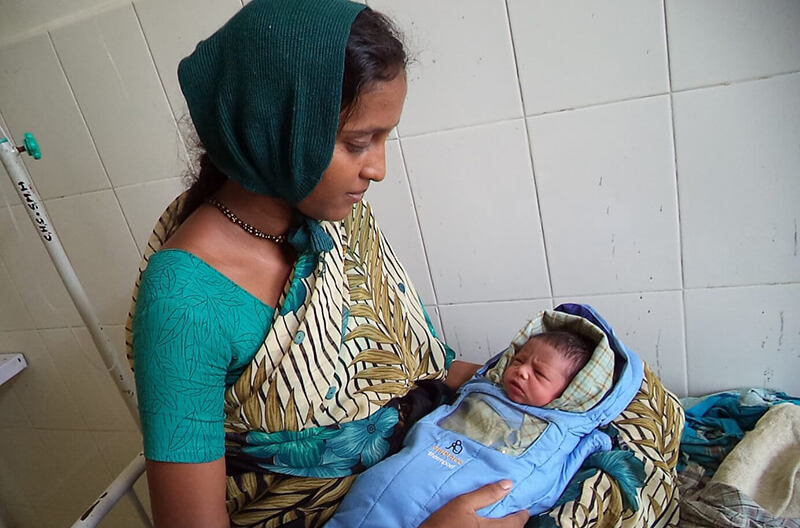Pregnancy Care for Diabetic Patients: A Guide by Dr. Sagar Clinic
- Home
- Pregnancy Care for Diabetic Patients: A Guide by Dr. Sagar Clinic


Managing diabetes during pregnancy is not only possible — it’s essential for a healthy mother and baby. At Dr. Sagar Clinic, we understand the unique challenges diabetic women face during pregnancy, and we’re here to guide you through every stage with expert care and compassion.
Whether you have type 1 diabetes, type 2 diabetes, or gestational diabetes, pregnancy can affect your blood sugar levels, insulin needs, and overall health. Proper management reduces the risk of complications for both mom and baby.


1. Pre-existing Diabetes:
Type 1 or Type 2 diabetes diagnosed before pregnancy
Requires strict glucose control before and during pregnancy
2. Gestational Diabetes:
Develops during pregnancy (usually after 24 weeks)
Often resolves after birth but increases the risk of type 2 diabetes later
If you have pre-existing diabetes, visit your doctor before conceiving to ensure:
Your blood sugar levels are under control (HbA1c < 6.5% ideally)
You’re on safe medications
Screening for diabetes-related complications (e.g., kidney, eye, or heart issues)
💬 At Dr. Sagar Clinic, we provide pre-pregnancy counseling to optimize your health before conception.
Frequent monitoring helps keep your sugar levels within target range:
Fasting: 70–95 mg/dL
1-hour post-meal: <140 mg/dL
2-hour post-meal: <120 mg/dL
Checklist:
Check blood glucose 4–6 times daily
Log results and symptoms
Adjust insulin doses as advised
Be aware of signs of hypoglycemia and carry glucose tablets
Diet is one of the most important tools in managing diabetes during pregnancy.
Tips:
Eat small, frequent meals (every 2–3 hours)
Focus on complex carbs (whole grains, legumes)
Include lean protein and healthy fats
Avoid sugary drinks and snacks
🍽️ Dr. Sagar Clinic offers personalized meal plans created in collaboration with dietitians.
You may need:
Insulin injections (even if you didn’t need them before pregnancy)
Adjustments to oral diabetes medications (some may not be safe)
Always consult your OB/GYN or endocrinologist before changing any medication.
High-risk pregnancies like those complicated by diabetes require more frequent visits, including:
Detailed ultrasounds to monitor baby’s growth
Fetal non-stress tests (NSTs) in the third trimester
Blood pressure monitoring
Urine tests for protein (to screen for preeclampsia)
🩺 At Dr. Sagar Clinic, we provide integrated care — combining obstetrics and diabetes management under one roof.
Gentle physical activity can improve insulin sensitivity and help control weight gain.
Recommended Activities:
Walking (30 minutes/day)
Prenatal yoga
Swimming or low-impact aerobics
⚠️ Always check with your doctor before starting or continuing an exercise program during pregnancy.
Women with diabetes may require:
Early delivery (around 38–39 weeks) if complications arise
Monitoring during labor to keep sugar levels stable
Cesarean section in some cases (especially if baby is large)
Even after delivery, diabetes care continues:
Blood sugar levels can change quickly after birth
Gestational diabetes usually resolves, but follow-up testing is essential
Breastfeeding is encouraged (it can improve insulin sensitivity)
Checklist:
Schedule postpartum glucose testing (6–12 weeks after delivery)
Continue a balanced diet
Watch for signs of postpartum depression
Managing diabetes during pregnancy might seem overwhelming, but with the right care, education, and support, you can have a safe and healthy pregnancy.
At Dr. Sagar Clinic, we offer:
Individualized prenatal care for diabetic mothers
On-site nutrition counseling
Regular fetal monitoring and ultrasounds
24/7 support for urgent concerns
📞 Book your appointment today and let us help you enjoy this journey with confidence and peace of mind.